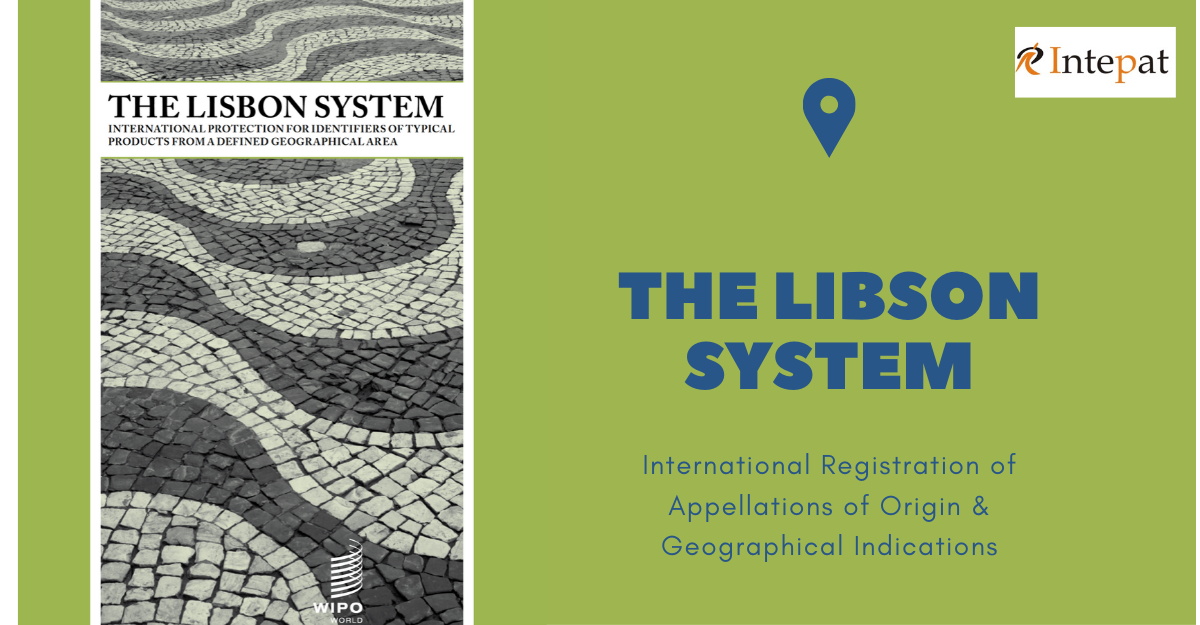The Lisbon System draws itself from the Lisbon Agreement for the Protection of Appellations of Origin and their International Registration, which entered into force on September 25, 1966. The agreement is regulated and administered by the International Bureau of WIPO, where the same was brought forth as an exclusive agreement under Article 19 of the Paris Convention for the Protection of Industrial Property.
Geographical indications and Appellations of Origin have been protected across different jurisdictions by various legislations, sui generis systems, administrative measures, etc. However, the methods of implementation across these nation-states vary, due to which securing protection for these indications across borders becomes highly complex and tedious. Therefore, the Lisbon Agreement materialized as a response to this problem, whereby there was a need to facilitate the protection of geographical indications and appellations of origin via an international system that would result in trans border protection. Further, it would exponentially reduce the expenses and procedures required by each country and its order of protection. The economic impact of this form of global stability is that most of these goods/products form a substantial part of exports. Thereby, it becomes imperative for the economic interests of the countries to protect these appellations of origin. After granting such protection, it protects the producers as it enables them to get a reasonable price for their products, which in turn maintains the quality of the product. The consumers get benefit in the manner that they are guaranteed the quality and methods used for production. Thus, the Lisbon system offers multi-pronged benefits.
Requirements & Registration Modalities
Article 2 of the Lisbon Agreement defines appellations of origin having three requirements. First, it should be the geographical denomination of a country, region, or locality, which serves to designate a product originating therein. Second, the quality or characteristics of the product are due exclusively or essentially to the geographical environment, including natural and human factors. Third, the country of origin is the country whose name, or situation, or locality of the country region or locality whose name constitutes the appellation of origin that has given the product its reputation.
Once these elements are satisfied, the beneficiary may proceed for the registration of the product. However, the prerequisite for registration is that the product must have protection granted in the country of origin, whereafter, the competent authority on behalf of the right holders. The International Bureau registers the appellation of origin in the international register and notifies all the countries of the Lisbon Union. The new additions are then published in the bulletin “Appellations of Origin” and added to the Lisbon Express, which is a database storing all the information about appellations of origin as registered.
During the registration process, a country may partially or entirely refuse protection; however, the country must substantiate the reasons for the same. The country filing for registration may, upon refusal, file an appeal against refusal. If no such refusal is declared, then the country has granted protection. The country filing for registration may, upon denial, file an appeal against refusal based on the remedies available in the country refusing protection.
Geneva Act of the Lisbon Agreement
The Geneva Act adopted on May 20, 2015, and the accession by the European Union on November 26, 2019, set the wheels in motion for its entry into force on February 26, 2020. The Geneva Act was instrumental in bringing back the focus onto the principles of the Lisbon System and saw many accessions such as from Cambodia & Côte d’Ivoire in 2018 & Albania in 2019.
A. Widened Scope
The primary difference, which was brought forth by the Geneva Act, was the incorporation of Geographical Indications (GI) with the pre-existing appellations of origin. Further, the difference relates to the qualitative link between the place of origin and the product, which is more reliable in the case of an appellation of origin. It requires the satisfaction of various specifications by the producer such as geographical origin, method of production, specifications of the product, etc. where the quality or characteristics of the product are due ‘exclusively or essentially’ to the geographical environment. The GI, however, provides a broader ambit for protection.
B. Transborder Appellations of Origin & GIs
Including trans-border appellations of origin and geographical indications has further widened the scope of the system. These originate from a geographical area, which extends over the territory of two adjacent Contracting Parties, and these parties have the option of either separate filing applications or joint applications.
C. Third-Party Rights & Prior Rights
With the Geneva Act in force, a third party whose rights would be affected by an international registration may request the competent national authority of their country to notify a refusal of protection in respect of such registration. Moreover, prior trademark rights, previous use of generic terms, personal names used in business, and rights-based on a plant variety or animal breed denomination are all safeguarded under the Act.
Progress in the Lisbon System
In the Report of the Director-General to the 2019 WIPO Assemblies, the system attracted renewed focus due to the adoption of the Geneva Act, which broadened the scope of protection. The application and registration process has seen growth wherein a record of 80 applications filed in 2014. The attribution of increase is due to the active participation by developing countries, where their share of international registration increased from 7% in 2010 to 28% in 2018.
The system has resulted in parties proactively working towards preventing any use, which would amount to the imitation of an appellation of origin or geographical indication or the usage of these for producing goods of the same kind. The new flexibility offered by the system has further incentivized member states to adhere to the principles of the Lisbon Agreement. Currently, the Third Session of the Working Group on the Development of the Lisbon System had scheduled on March 10 & 11, 2020. The draft plan for the same portrays the effort to develop and strengthen the system further, however, due to the risk posed by COVID-19, the same stands postponed as directed by the World Intellectual Property Rights Organization.




